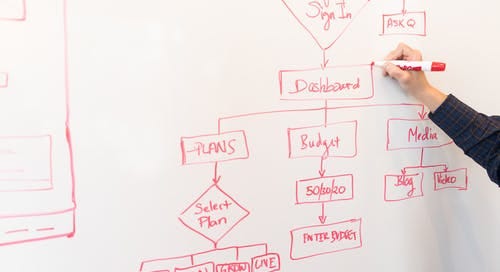Why I Believe in "The Process"
I’ve always been a big believer in the idea that small things done well over a long period of time will lead to big opportunities. Whether it is business, sports, or a hobby, the ability to create a process helps create clarity and insight in how to achieve a goal. I’ve been fortunate to observe and study a number of talented business leaders and athletic coaches who abide by a process as part of their daily routine. In the past few years, a close friend of mine suggested that I take a look at Nick Saban, the head football coach at the University of Alabama, and his process for achieving success with his football program. The planning, focus, and regimen that Coach Saban puts his players through is admirable and it is no surprise that Alabama is consistently one of the top ranked football teams in college football each year. For a quick video clip that describes Coach Saban’s process, please click here.
I personally have developed a process throughout my own career as a salesperson that has helped me stay focused and organized. Each one of us should have the freedom to create our own process so that we can own our own routine and take responsibility for our successes and failures. I often sit down with my manager and my colleagues to share best practices and learn more about how I can improve my own process.
Below is a short list of some of the essentials that come to mind when I think about my own process as it pertains to sales and business development as a salesperson.
#1) Think with the end in mind and make sure that you visualize what you want your process to achieve. It sounds simple, but it is often overlooked. It’s critical to be able to describe exactly what you want to achieve with your own process. For example, I work in sales and I have a process to find new companies that may be interested in using LinkedIn’s technology to drive new business development and revenue generation. My process starts about 90 days before I engage with my potential customer and it requires research, planning and collaboration with my team.
#2) Your process is only as good as the time you allocate to it. How do you allocate time to your process? Time is our most valuable resource. How do you plan to make the most of your time? I’m constantly attempting to get the most out of my ‘work’ time. I attempt to plan my calendar out 2-3 weeks in advance so that I can factor in my professional and personal activities. For example, if I need to do research as part of my process for an upcoming meeting, I will attempt to plan this into my calendar several days or weeks before the meeting. This enables me to avoid the last minute stress of getting everything together for the meeting.
#3) Decide on how you will track, measure, and edit your process. Again, it’s not a hard thing to do, but it does require you to remain focused on what system you will use to keep tabs on yourself. For example, will you keep track of everything via your electronic calendar? Or will you use a notebook? Will you be able to access and edit your process and plan while you are mobile? My advice would be to have one central system to track your process. Don’t have your calendar on your computer for work and then keep your personal calendar in a notebook or another program. Keep everything in one place so that you can edit on the fly.
#4) Be open, flexible, and honest with new potential options to enhance your process. Always be looking for ways to make your process more efficient. Perhaps it’s a new method to take notes, a new way to capture information, etc. I’m constantly keeping tabs on new technologies and methods to enhance my process. I usually test something for a given period of time before I implement it into my process.
#5) If you are in sales/business development, assume your customer does not have a process. I know it sounds a bit harsh, but I believe this is true. Most clients I deal with do not have a process. I often ask and attempt to co-create a process with my customers as I think it provides guidance on how to evaluate a potential solution. Sometimes this works, sometimes it doesn’t. Either way, it helps both the customer and I come to a conclusion together which is often a win in of itself.
If you or other members of your sales team are looking to become better at the craft of sales, then please let me know.
Here are a few ways that I may be able to help:
1) Grab a copy of the book or audiobook, Carry That Quota. You can order it here on Amazon or Audible.
2) Take a look at the Carry That Quota Digital Workshop Series. Here is a link to all of the online workshops.
Each workshop is less than 40 minutes and has been designed to help salespeople get better at the craft of sales by focusing on the fundamentals of the sales profession. Salespeople and sales leaders can access these workshops on their phone, their computer or tablet.



